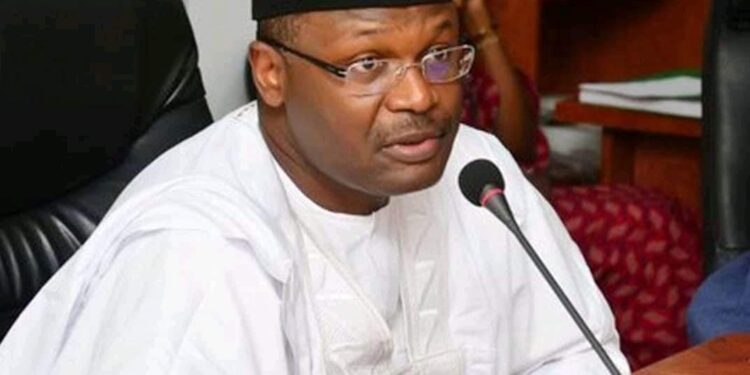The Liberia’s National Elections Commission (NEC) has honoured Prof. Mahmood Yakubu, the Chairman of the Independent National Electoral Commission (INEC) for his contributions to the development of the country’s electoral processes.
Madam Davidetta Lansanah, the Chairperson, NEC, presented Yakubu with the award at an event to mark the commission’s dedication of a workspace for its staff in Liberia.
The Chief Press Secretary to INEC Chairman, Mr Rotimi Oyekanmi said this in a statement in Abuja on Saturday.
Lansanah acknowledged the technical support rendered by Yakubu in establishing the workspace and bolstering the electoral process in Liberia.
She expressed the country’s gratitude for what she described as the indispensable contributions made by Yakubu and INEC Nigeria in sustaining Liberia’s democratic journey.
Recalling Yakubu’s role as President of the ECOWAS Network of Electoral Commissions (ECONEC), Lansanah highlighted his advocacy for resource-sharing among regional Electoral Management Bodies (EMBs).
She commended his influential efforts, resulting in Liberia’s election as the First Vice-President of ECONEC in 2021.
She thanked Yakubu for his steadfast backing of NEC-Liberia in various regional endeavours.
In his response, Yakubu expressed appreciation for the honour bestowed upon him in dedicating the workspace to staff.
Yakubu emphasised the value of the resource in enhancing the operational capabilities of staff, particularly through Information and Technology (IT) facilities.
Reflecting on past collaborations, Yakubu recalled INEC Nigeria’s assistance during Liberia’s 2017 Presidential election, highlighting the joint efforts of IT experts from INEC and NEC-Liberia in addressing stakeholders’ concerns regarding the voters’ register.
He also acknowledged INEC’s technical support ahead of subsequent special elections, the 2020 referendum facilitated by ECOWAS, and the implementation of the biometric register in the recent general election.
Emphasising the significance of inter-EMB collaboration, Yakubu underscored the complexity of election management and urged prioritising peer support amid limited resources and escalating election costs.
Some personalities at the occasion included the United Nations (UN) Resident Coordinator in Liberia, Christine Umutoni; Charge d’ Affaires of the Nigerian Embassy in Liberia, Mr Manir Ibrahim and the Representative of the Liberian Bar Association.(NAN











